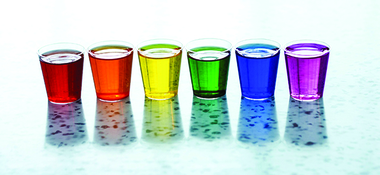Here’s to your health

by Abra Cullen
Staff Writer
Years before Stonewall, queer communities met, socialized, and organized themselves within bars. It could be argued bars make up much of queer-central spaces.
For Josh Harden, introduction to alcohol came at an early age. “I was in middle school. A friend had a clear, fruity-smelling liquid; he insisted it was just peach water. I asked if I could have a drink, and he said ‘yes.’ Later, I found out he was suspended, and I drank alcohol on campus.”
After reaching legal drinking age, Harden started drinking heavily. “I fully abused alcohol. I would binge drink. I would drink on weekdays. I would drink for no reason. I would drink and drive. I would be that friend who would be completely wasted at 2 p.m.”
Once he aged out of university life, Harden said his relationship with alcohol became a lot more stable. However, the pressure to drink when in communal spaces for Harden is still very real.
“If I have a reason for not drinking I do not feel any pressure, like if I’m on a new medication or I am feeling sick. However, if I’m just not drinking by choice, I feel as though I’m not doing what I should be doing at gay bars and I am the odd man out.”
Harden added, “I just wish there were other places for gay people to hang out with each other that isn’t centered around getting drunk at bars.”
For Kristofer Eckelhoff, a trans man, the journey to sobriety has been rough.
“I have been sober for nearly eight years now. I was 19 when I had my first drink, but I believe I developed the traits of alcoholism and addiction long before that.”
Eckelhoff, who is currently involved in a recovery program, said that being queer had a huge impact on how much he drank and how often.
“I felt pressured to drink, especially after I came out as homosexual. Being transgender wasn’t even on my radar. I knew I was different in that respect and knew I wanted to be a man, but since it wasn’t a possibility, so I thought, I self-medicated and tried to deal.”
Eckelhoff said that this problem is endemic of a greater issue within the queer community.
“Alcoholism and addiction disproportionately affect queer people when compared to heterosexual/cisgender folks. There are, of course, intersecting issues of race, disability, etc., compounded when people are dealing with those issues also have what society would deem as an ‘abnormal’ sexual orientation or gender identity.”
Lesbian Minister Megan Grant said she was with friends near her campus when she had her first drink.
Grant, who attended a very strict private Christian university set up a safe space for others who wanted a drink so they wouldn’t drink alone. “I loved being the place where people drank responsibly because it went against [my school’s] dumb rules.”
Grant explained since coming out alcohol has become a larger part of her life. “I don’t know if that is because I was raised in a conservative world and I’m just now experiencing more open-minded people or if it is because I am in the queer world. The correlation is blurry.”
Grant said that finding other queer people without alcohol isn’t unheard of, but it’s less often.
Spencer Hankins, who first purchased beer two months shy of turning 21, said his alcoholism and his identity as a queer man don’t intersect. “It has everything to with something bigger than that.”
Hankins had previously struggled with his weight.
“At one time I used to mask all of those feelings of inadequacies with food, which resulted in me once weighing 525 pounds.”
Hankins eventually sought surgery to correct his obesity.
“When I decided to have the gastric bypass, I could no longer stuff those feelings down with food, so I ‘swapped the addiction;’ alcohol for food.” However, he has now been sober for more than a decade and maintains his weight.
If you or a loved one is struggling with alcohol in any way, there are resources available to you. You can find a therapist specializing in issues related to drinking or visit with your pastor, chaplain or someone you trust. Information about local 12-step meetings may be found at www.aa.org. Visit your doctor if you have medical issues related to excessive drinking.
The Gayly. March 2, 2018. 9:42 a.m. CST.





